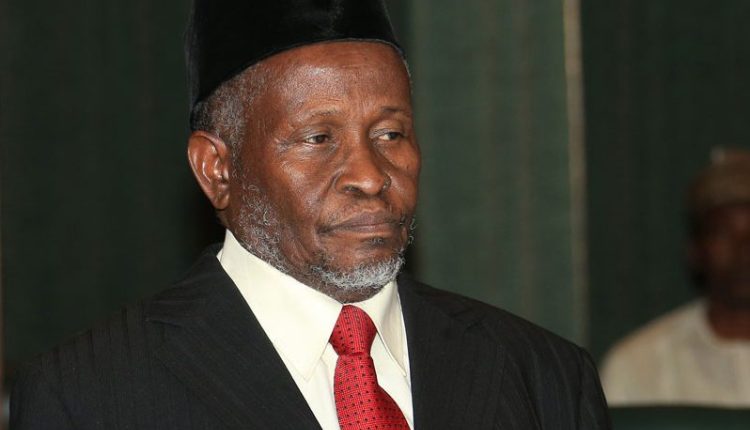CJN Tanko leads six other Supreme Court judges to hear Atiku’s appeal against Buhari’s victory
The Chief Justice of Nigeria (CJN), Tanko Muhammad, is leading the seven-member panel of the Supreme Court hearing the main appeals challenging the February 23 presidential election.
Other members of the panel are Justices Bode Rhodes-Vivour, Kayode Ariwoola, Amiru Sanusi, John Okoro, Ejembi Eko and Uwani Abba-Ajji.
Mr Muhammad was appointed chief justice by President Muhammadu Buhari after the controversial removal of Walter Onnoghen for false assets declaration.
The Peoples Democratic Party (PDP) and its presidential candidate, Atiku Abubakar, approached the Supreme Court after the presidential election petition tribunal at the Court of Appeal dismissed their petition against Mr Buhari’s victory.
Following the September 11 decision affirming the re-election of Mr Buhari, the PDP and Mr Abubakar filed their request before the apex court challenging the decision.
The appellants said the Court of Appeal panel that heard their petition erred in law when it ruled that President Buhari did not need to submit an actual certificate to INEC as part of documents in his CF001.
They also challenged other aspects of the ruling of the presidential election tribunal.
The ruling
While delivering the September ruling, the tribunal said the petitioners failed to prove their petition beyond reasonable doubt and the petition was “dismissed in its entirety.”
All five members of the panel agreed with the lead judgement.
The tribunal said Mr Abubakar and the PDP provided no evidence that the 2019 general election was not in compliance with the Electoral Act.
Justice Garba Mohammed who read the ruling noted a number of allegations brought by the petitioners to back their claim of massive non-compliance to electoral guidelines across the nation.
He said some of the issues raised include “none holding of elections in some polling units, cancellation of results,over-voting, inflation and deflation of votes among other things.”
“The petitioners have a duty to prove all the allegations which are criminal in nature beyond reasonable doubt.
“The petitioners pleaded that so many of their agents were situated in various polling units and that members of the first respondents connived with security agents to conduct massive rigging.
“They also alleged that no real voting took place in Dekina local government area, among others,” the judge said.
The court, however, added that the PDP failed to call the polling unit agents who would have testified to the fact that they were arrested, harassed or affected by the violence pictured by the petitioners.
There is no admissible evidence on record to support the petitioner’s allegations, the court ruled.
“Like I had mentioned, there is no admissible evidence to link the witnesses with the allegations of non-compliance to the electoral act or of corruption,” the judge said.
Culled from Premium Times

